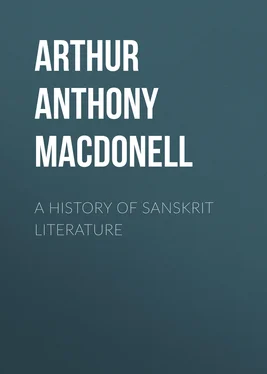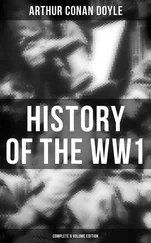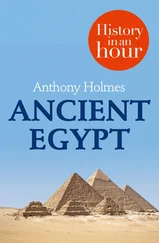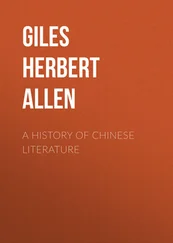Arthur Anthony MacDonell - A History of Sanskrit Literature
Здесь есть возможность читать онлайн «Arthur Anthony MacDonell - A History of Sanskrit Literature» — ознакомительный отрывок электронной книги совершенно бесплатно, а после прочтения отрывка купить полную версию. В некоторых случаях можно слушать аудио, скачать через торрент в формате fb2 и присутствует краткое содержание. Жанр: foreign_prose, foreign_antique, на английском языке. Описание произведения, (предисловие) а так же отзывы посетителей доступны на портале библиотеки ЛибКат.
- Название:A History of Sanskrit Literature
- Автор:
- Жанр:
- Год:неизвестен
- ISBN:нет данных
- Рейтинг книги:5 / 5. Голосов: 1
-
Избранное:Добавить в избранное
- Отзывы:
-
Ваша оценка:
- 100
- 1
- 2
- 3
- 4
- 5
A History of Sanskrit Literature: краткое содержание, описание и аннотация
Предлагаем к чтению аннотацию, описание, краткое содержание или предисловие (зависит от того, что написал сам автор книги «A History of Sanskrit Literature»). Если вы не нашли необходимую информацию о книге — напишите в комментариях, мы постараемся отыскать её.
A History of Sanskrit Literature — читать онлайн ознакомительный отрывок
Ниже представлен текст книги, разбитый по страницам. Система сохранения места последней прочитанной страницы, позволяет с удобством читать онлайн бесплатно книгу «A History of Sanskrit Literature», без необходимости каждый раз заново искать на чём Вы остановились. Поставьте закладку, и сможете в любой момент перейти на страницу, на которой закончили чтение.
Интервал:
Закладка:
I will proclaim the manly deeds of Indra,
The first that he performed, the lightning-wielder.
He smote the dragon, then discharged the waters,
And cleft the caverns of the lofty mountains.
Impetuous as a bull, he chose the soma,
And drank in threefold vessels of its juices.
The Bounteous god grasped lightning for his missile,
He struck down dead that first-born of the dragons.
Him lightning then availèd naught, nor thunder,
Nor mist nor hailstorm which he spread around him:
When Indra and the dragon strove in battle,
The Bounteous god gained victory for ever.
Plunged in the midst of never-ceasing torrents,
That stand not still but ever hasten onward,
The waters bear off Vṛitra’s hidden body:
Indra’s fierce foe sank down to lasting darkness.
With the liberation of the waters is connected the winning of light and the sun. Thus we read that when Indra had slain the dragon Vṛitra with his bolt, releasing the waters for man, he placed the sun visibly in the heavens, or that the sun shone forth when Indra blew the dragon from the air.
Indra naturally became the god of battle, and is more frequently invoked than any other deity as a helper in conflicts with earthly enemies. In the words of one poet, he protects the Aryan colour ( varṇa ) and subjects the black skin; while another extols him for having dispersed 50,000 of the black race and rent their citadels. His combats are frequently called gavishṭi , “desire of cows,” his gifts being considered the result of victories.
The following stanzas (ii. 12, 2 and 13) will serve as a specimen of the way in which the greatness of Indra is celebrated:—
Who made the widespread earth when quaking steadfast,
Who brought to rest the agitated mountains.
Who measured out air’s intermediate spaces,
Who gave the sky support: he, men, is Indra.
Heaven and earth themselves bow down before him,
Before his might the very mountains tremble.
Who, known as Soma-drinker, armed with lightning,
Is wielder of the bolt: he, men, is Indra.
To the more advanced anthropomorphism of Indra’s nature are due the occasional immoral traits which appear in his character. Thus he sometimes indulges in acts of capricious violence, such as the slaughter of his father or the destruction of the car of Dawn. He is especially addicted to soma, of which he is described as drinking enormous quantities to stimulate him in the performance of his warlike exploits. One entire hymn (x. 119) consists of a monologue in which Indra, inebriated with soma, boasts of his greatness and power. Though of little poetic merit, this piece has a special interest as being by far the earliest literary description of the mental effects, braggadocio in particular, produced by intoxication. In estimating the morality of Indra’s excesses, it should not be forgotten that the exhilaration of soma partook of a religious character in the eyes of the Vedic poets.
Indra’s name is found in the Avesta as that of a demon. His distinctive Vedic epithet, Vṛitrahan , also occurs there in the form of verethraghna , as a designation of the god of victory. Hence there was probably in the Indo-Iranian period a god approaching to the Vedic form of the Vṛitra-slaying and victorious Indra.
In comparing historically Varuṇa and Indra, whose importance was about equal in the earlier period of the Rigveda , it seems clear that Varuṇa was greater in the Indo-Iranian period, but became inferior to Indra in later Vedic times. Indra, on the other hand, became in the Brāhmaṇas and Epics the chief of the Indian heaven, and even maintained this position under the Puranic triad, Brahmā-Vishṇu-Çiva, though of course subordinate to them.
At least three of the lesser deities of the air are connected with lightning. One of these is the somewhat obscure god Trita, who is only mentioned in detached verses of the Rigveda . The name appears to designate the “third” (Greek, trito-s ), as the lightning form of fire. His frequent epithet, Āptya , seems to mean the “watery.” This god goes back to the Indo-Iranian period, as both his name and his epithet are found in the Avesta . But he was gradually ousted by Indra as being originally almost identical in character with the latter. Another deity of rare occurrence in the Rigveda , and also dating from the Indo-Iranian period, is Apāṃ napāt, the “Son of Waters.” He is described as clothed in lightning and shining without fuel in the waters. There can, therefore, be little doubt that he represents fire as produced from the rain-clouds in the form of lightning. Mātariçvan, seldom mentioned in the Rigveda , is a divine being described as having, like the Greek Prometheus, brought down the hidden fire from heaven to earth. He most probably represents the personification of a celestial form of Agni, god of fire, with whom he is in some passages actually identified. In the later Vedas, the Brāhmaṇas, and the subsequent literature, the name has become simply a designation of wind.
The position occupied by the god Rudra in the Rigveda is very different from that of his historical successor in a later age. He is celebrated in only three or four hymns, while his name is mentioned slightly less often than that of Vishṇu. He is usually said to be armed with bow and arrows, but a lightning shaft and a thunderbolt are also occasionally assigned to him. He is described as fierce and destructive like a wild beast, and is called “the ruddy boar of heaven.” The hymns addressed to him chiefly express fear of his terrible shafts and deprecation of his wrath. His malevolence is still more prominent in the later Vedic literature. The euphemistic epithet Çiva , “auspicious,” already applied to him in the Rigveda , and more frequently, though not exclusively, in the younger Vedas, became his regular name in the post-Vedic period. Rudra is, of course, not purely malevolent like a demon. He is besought not only to preserve from calamity but to bestow blessings and produce welfare for man and beast. His healing powers are mentioned with especial frequency, and he is lauded as the greatest of physicians.
Prominent among the gods of the Rigveda are the Maruts or Storm-gods, who form a group of thrice seven or thrice sixty. They are the sons of Rudra and the mottled cloud-cow Pṛiçni. At birth they are compared with fires, and are once addressed as “born from the laughter of lightning.” They are a troop of youthful warriors armed with spears or battle-axes and wearing helmets upon their heads. They are decked with golden ornaments, chiefly in the form of armlets or of anklets:—
They gleam with armlets as the heavens are decked with stars;
Like cloud-born lightnings shine the torrents of their rain (ii. 34, 2).
They ride on golden cars which gleam with lightning, while they hold fiery lightnings in their hands:—
The lightnings smile upon the earth below them
What time the Maruts sprinkle forth their fatness. —(i. 168, 8).
They drive with coursers which are often described as spotted, and they are once said to have yoked the winds as steeds to their pole.
The Maruts are fierce and terrible, like lions or wild boars. With the fellies of their car they rend the hills:—
The Maruts spread the mist abroad,
And make the mountains rock and reel,
When with the winds they go their way (viii. 7, 4).
Интервал:
Закладка:
Похожие книги на «A History of Sanskrit Literature»
Представляем Вашему вниманию похожие книги на «A History of Sanskrit Literature» списком для выбора. Мы отобрали схожую по названию и смыслу литературу в надежде предоставить читателям больше вариантов отыскать новые, интересные, ещё непрочитанные произведения.
Обсуждение, отзывы о книге «A History of Sanskrit Literature» и просто собственные мнения читателей. Оставьте ваши комментарии, напишите, что Вы думаете о произведении, его смысле или главных героях. Укажите что конкретно понравилось, а что нет, и почему Вы так считаете.












